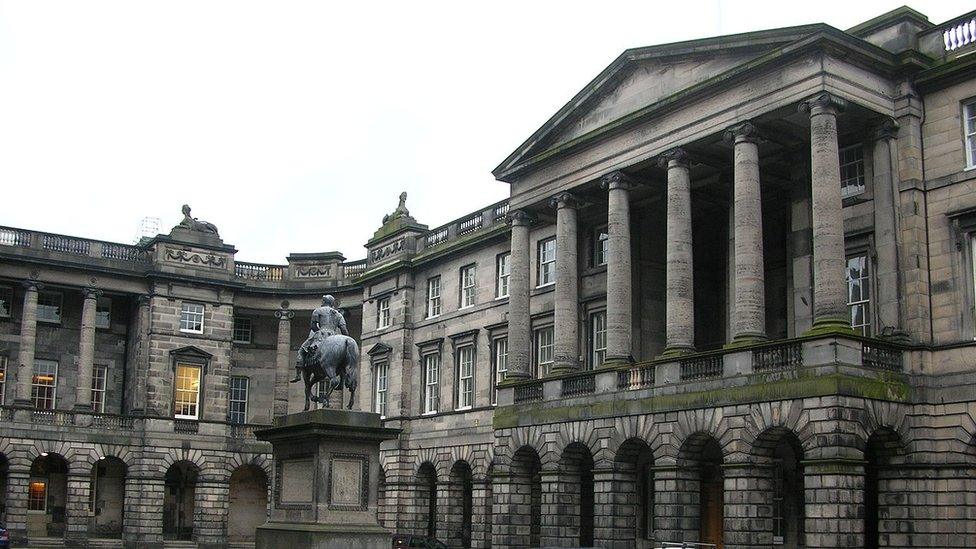Judges retire to consider IndyCamp eviction appeal
- Published

The camp was set up outside the Scottish Parliament in November 2015
Judges have retired to consider an appeal by independence campaigners who face being evicted from a camp outside the Scottish Parliament.
The IndyCamp group set up outside Holyrood in November 2015, but were ordered to quit the site by the parliament's corporate body.
The latest arguments in a lengthy legal battle over the camp were heard by the Inner House of the Court of Session.
The three judges will issue a written judgement in due course.
The campers want to remain in place outside Holyrood until Scotland is independent, and say eviction would infringe their human rights.
The Scottish Parliamentary Corporate Body (SPCB) meanwhile argues that the group are camping without permission, taking up space others could be using and endangering the neutrality of the parliamentary estate.
Lord Turnbull ruled in favour of the SCPB's bid for an eviction order after a lengthy court case, but the group appealed to the Inner House.
At an eventful hearing chaired by Lady Dorrian, the Lord Justice Clerk, several different appeals were put forward by the campers.
Four of the group were represented by a lay representative, Martin Keatings, who argued that evicting the camp could set a "dangerous precedent" for future cases, warning of "real world consequences".
He said it was a "scary prospect" that parliament could be allowed to dictate how people interact with it and express themselves, by being able to evict a protest from its grounds.

The case was heard at the Court of Session in Edinburgh
He said the camp was a community, rather than a single entity or structure. He also said that as the camp served a multitude of purposes including recreation and education, the group should be allowed access rights under the Land Reform Act.
Mr Keatings also criticised the way the parliament's corporate body had interacted with the campers, saying they had made no effort to find a middle ground in negotiations, and hit out at "sensationalist" media coverage of the case.
Judges 'incompetent'
One camper, who asked to be known only as David, challenged the jurisdiction of the court, insisting judges were "incompetent" to hear the case.
He said only a jury could fairly judge the case, and said the judges may have committed a criminal act by refusing to recuse themselves. He withdrew himself from the case saying he would set up his own proceedings, which would include a jury.
Another appellant, Arthur Gemmell, agreed that the case was "not for one man, any man, to judge".
One of the other appellants in the case, Richard McFarlane, argued that the court was illegitimate due to the return of Christ, who he said was a supporter of Scottish independence and had given permission for the camp to use his land.
He said the Queen had been crowned on a "false" Stone of Destiny, meaning the judges appointed in her name had no jurisdiction.
During a break in proceedings, police had to remove a man dressed in robes who referred to himself as Jesus Christ after a disturbance in the courtroom.
All of those involved in the case underlined that they were not associated with the man in any way.
- Published2 September 2016

- Published27 July 2016
